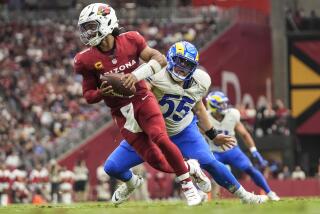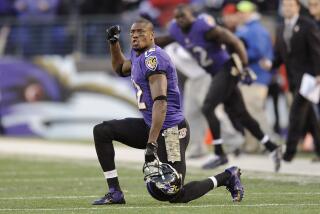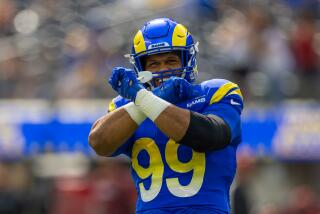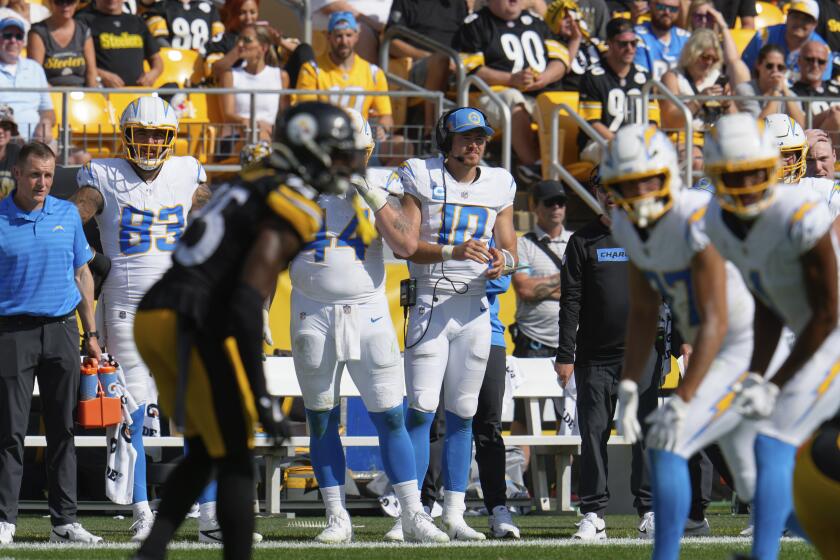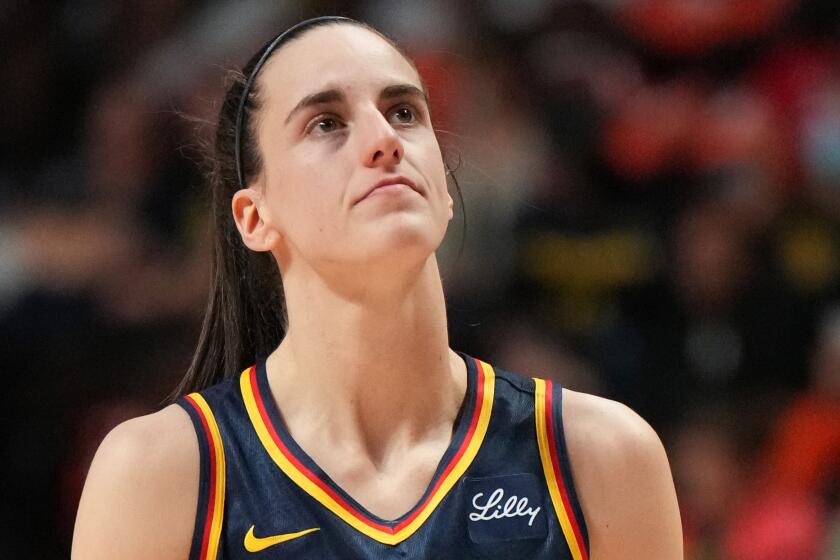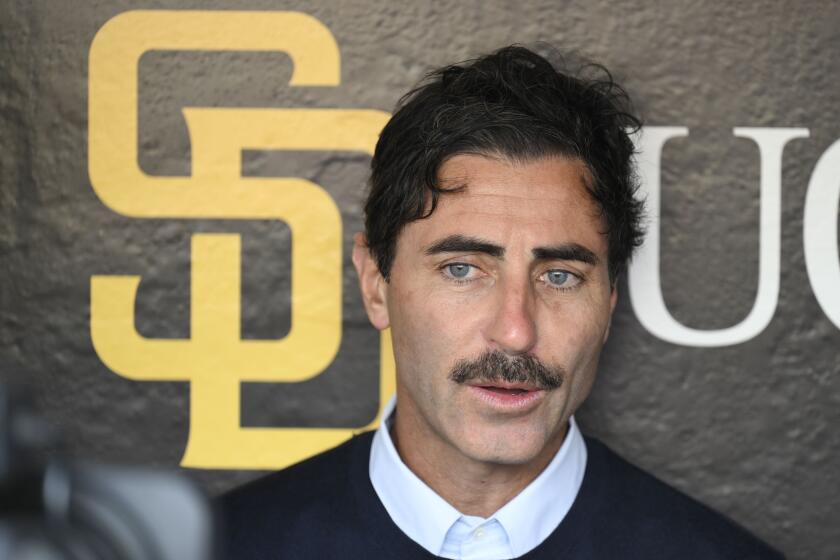Billy Cundiff, Kyle Williams and stumbles in the spotlight
Not long after he hooked that kick wide left, costing his team a shot at the Super Bowl, Billy Cundiff was thinking about something bigger than football.
The Baltimore Ravens kicker had just missed a seemingly routine 32-yard attempt that could have sent the AFC championship game against the New England Patriots into overtime.
In the locker room afterward, speaking to reporters, he mentioned his two kids at home.
“There are some lessons I need to teach them,” he said. “First and foremost is to stand up and face the music and move on.”
Cundiff wasn’t alone in stumbling at a crucial moment on Sunday. Nearly three thousand miles west, San Francisco 49ers returner Kyle Williams fumbled a punt in overtime to hand the New York Giants a victory in the NFC championship game.
With those missteps, Cundiff and Williams added their names to a short list of pro football’s biggest blunderers. They now face the difficult task of leaving the disappointment behind, making sure their careers are remembered for something more than a moment’s letdown.
“You feel bad for those guys,” said Herman Edwards, a former NFL player and coach who now works as an analyst for ESPN. “They’ve got to live with it.”
Failure on the big stage can stick with a player.
No matter how many years he kicked in the NFL, Scott Norwood will always be remembered for “Wide Right,” the missed field-goal attempt that cost his Buffalo Bills a victory in Super Bowl XXV.
Despite the fact that Jackie Smith ranked among the finest tight ends of his era, fans might never forget that he dropped a tricky but wide-open pass that could have gone for a touchdown as the Dallas Cowboys lost in Super Bowl XIII.
“How do you not get hung up on that one mistake?” asked Larry Lauer, a sports psychologist at Michigan State University. “It’s easier said than done.”
The road back from disappointment begins with the team’s reaction.
Baltimore Ravens Coach John Harbaugh was quick to stand up for Cundiff, calling him a “great kicker” and predicting that he will be fine. Williams, who fumbled another punt during regulation, heard similar encouragement from his teammates.
“Obviously, he’s going to be thinking about those two punt returns for quite a while, but we didn’t lose there,” quarterback Alex Smith said. “Offensively, we just weren’t good enough … we didn’t get it done.”
But this is the NFL, a brutal world where careers can end in a heartbeat. So the initial disappointment and consolation soon gives way to somber evaluation.
When Edwards was coaching the New York Jets in 2005, his respected kicker, Doug Brien, missed two field-goal tries in the final two minutes of a playoff game his team ultimately lost in overtime.
“We knew we couldn’t bring him back,” Edwards said. “We drafted a kicker the next year.”
There have been other situations where, after looking at a player’s history and talent, the coach decided to keep him on the roster. Thus begins the rehabilitation process.
An athlete who has failed to perform under pressure should not simply dismiss what happened as an anomaly.
“That’s a fragile confidence,” Lauer said. “A resilient confidence is: I accept that I made a mistake and I’m going to deal with it.”
The 49ers’ Williams, who reportedly received death threats via social media on Sunday, initially seemed to brush aside his fumbles as “just one of those things” but later accepted full responsibility.
Working from Michigan State’s Institute for the Study of Youth Sports, Lauer trains athletes to be disciplined in executing a step-by-step mental procedure almost like a basketball player’s bouncing the ball before a free throw.
They should attempt to control their breathing and heart rate in stressful situations. Any negative thoughts — especially memories of past disappointments — should be replaced by visualizing a successful outcome.
“Does it take a lot of mental discipline? Yes,” Lauer said. “Do you need to persuade yourself? Yes.”
The coaching staff can also play a role.
That starts with simulating pressure situations in practice by pumping in crowd noise or having players execute against a ticking clock, for example.
Edwards said that coaches must also be realistic about which players might benefit the team but do not thrive in clutch situations.
“There are certain guys you don’t want doing certain things under pressure,” he said. Conversely, he added, “You’ve got to know who you are going to throw to on third and five, who do you want covering the other team’s best receiver in the fourth quarter.”
It remains to be seen how Williams will respond to Sunday’s setback. The second-year receiver wasn’t even supposed to be returning punts against the Giants. He was thrust into the special-teams lineup after the 49ers’ top returner, Ted Ginn Jr., suffered an injury two weeks ago.
But on offense, he played an increasingly important role, catching a string of passes late in the season.
“He’s a tremendous athlete,” linebacker Patrick Willis said.
Kickers seem more interchangeable, moving around the league with frequency. But Cundiff is a veteran with eight seasons and more than 130 field goals on his resume.
Standing before the media, he seemed upset but fairly confident about his future. And about being known for more than a kick that sailed wide left.
“We’ll move on from this,” he said. “It’s one of those things that will strengthen me in the end.”
twitter.com/latimeswharton
More to Read
Go beyond the scoreboard
Get the latest on L.A.'s teams in the daily Sports Report newsletter.
You may occasionally receive promotional content from the Los Angeles Times.
